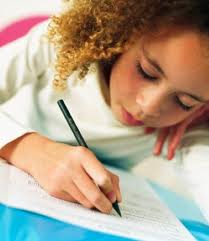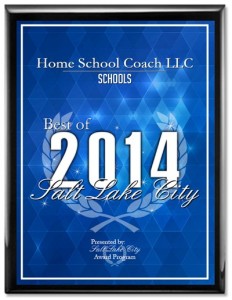Oral Exams and Familiar Conversations
I talked about the standardized testing pros and cons in the last post. Now let me come to the home school testing method I suggest. Because we are, for the most part, concerned with the age group of 0 to about 12 we need to keep that in mind when talking about testing.
The purpose of exams is to test the student’s acquisition of knowledge and ability to communicate and apply it. The real question is: Have they learned to think? Multiple choice, fill-in-the-blank, and other such exams measure memory of facts only, which requires little thinking.
The two types of testing that Oliver DeMille recommends as most beneficial are essay and oral exams. Of course essay exams are fairly impractical for most of those in the age groups we deal with in this blog. However, for parents who want to test and feel that it would really help them feel more comfortable about educating their children, an oral exam is a definite possibility.
You can engage in that wonderful ‘familiar conversation’ that I talk about. After you have used a number of methods, including The Spark Station, to introduce and teach your child about a topic you can hold these oral exams with your children. You could ask your four year old as you weed the garden. “Mary, I love birds. Tell me everything you know about birds.”
You could have an oral exam with your 12 year old as you can the beans. “Daniele, what do you think about Mary Cassatt’s paintings?”
You can engage your 10 year old in a mini exam as you make a cake. “William, I have a hard time remembering all my six times tables. Can you recite them for me?” (If he can’t then you have a perfect opportunity to say “Lets help each other get those pesky six’s down, ok.)
“Bill, what do you know about Albert Einstein?” “Esther, do you ever think about telling a lie?” “Jack, if you could choose one kind of dog what would it be and how would you care for it.” As you can see, there is not much in the way of requirements or preparation needed for performing this test.
I found an exam pattern that one mom gave her eight year old at the end of their formal home school year. It contained questions about things they had learned during the year. Although it may have been a written exam it would make a great oral exam. Here are some questions from that test.
“Tell me about your favorite Mary Cassatt work. Use “their” in a sentence. Describe your favorite scene in Alice in Wonderland. What have you noticed about plants? Tell me how to do a division problem. Tell me all you know about Mary Cassatt. Use “accept” in a sentence. Tell me how to do a 2 digit multiplication problem. Tell me the story of Abraham. Tell me everything you know about Christina Rossetti. Describe your favorite scene in The Wonderful Wizard of Oz. Tell me all you know about Alexander Graham Bell. Tell me the story of Isaac & Jacob. Use “except” in a sentence. Use “they’re” in a sentence. Tell me how to identify 3 different birds. Tell me how to find out how many yards are in 9 feet. Recite Psalm 46. Write a paragraph about what you want to do this summer. Describe your favorite scene in My Side of the Mountain. Tell me all you know about John James Audubon. Recite you’re 6 Times Table.”
Although this mom asked questions in math, art, music, history, English and so forth each day for the final week of their formal school year it would be great to ask these kinds of questions as you go, all through the year. Engage in ‘familiar conversations’ and get a feel for what your children know and what they are itching to know.
Possibly Related Posts:
- Shedding My Skin
- Take Control This Summer – Your Stories Affect Your Family Relationships
- Touchpoints For Summer PRESENCE
- Top 10 Educational Apps for Kids
- Family Matters: 4 Pool Games for Having Fun as a Family – Guest Post





{ 1 comment… read it below or add one }
Lovely article and helpful examples. You have epitomized the role and temperament of my ideal teacher and teaching techniques. I especially enjoyed your suggestion for continuing the conversation to include future study. thank you.